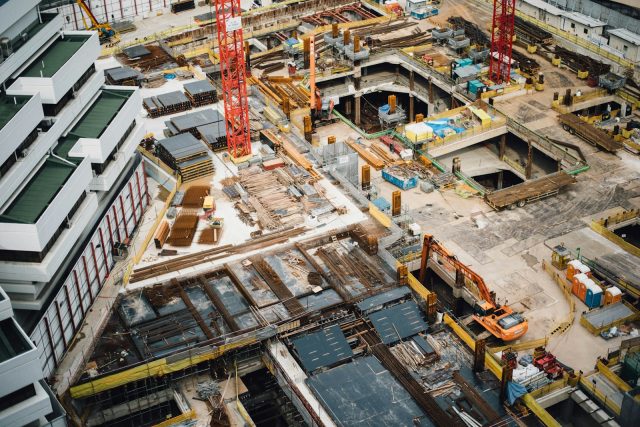
Residential projects are usually smaller and require minimal planning compared to industrial projects. A contractor can build a small house with just a basic design and achieve the desired results. However, commercial or industrial construction projects need more attention. They must follow strict rules, building codes, and safety standards to meet legal and industry requirements.
To successfully manage an industrial construction project, the construction contractors and the owners must plan carefully and work with the right people. This article highlights the key factors determining success or failure when undertaking industrial construction projects.
Experienced Project Team
Contractors cannot build a factory or warehouse like a typical residential house. Advanced skills are needed to handle electrical, plumbing, ventilation, and roofing systems. So, the team handling industrial construction projects must include competent professionals who can effectively manage the project from planning to the final inspection.
For example, building a food processing plant might require special equipment and systems that must meet functional and health standards. An inexperienced contractor may not know the right equipment and how to install it. So, the industrial construction team should include professionals to handle every aspect to avoid mistakes, delays, and safety risks.
Other professionals contributing to the success of industrial construction projects include engineers who design the structures and architects who ensure they fit the purpose. Project managers handle financial issues and ensure that contractors meet the completion timelines. Supervisors check daily work to ensure the project is completed on time and within the budget.
Project Vision and Client Involvement
Even though industrial construction experts offer technical advice, they only build what the client wants. So, clients must have a clear vision. What is the building for? What are the must-have features? Contractors and the design team should have the answers from the start.
A clear construction plan helps avoid confusion later. The vision will guide every step, from choosing materials to final finishes. Without this, the team might have to make changes after construction starts, which can lead to financial losses. So, ongoing collaboration between the parties ensures the project runs as planned.
Good Communication and Risk Management
Contractors must discuss project details with clients, designers, and suppliers. They should discuss the timeline, the budget, design changes, and safety plans. Industrial construction projects flow smoothly when the construction team has all the necessary supplies and can communicate effectively.
However, bad weather, late deliveries, or staff issues may cause delays and losses. A reliable construction team prepares for these challenges. They do a risk check early and create backup plans.
For example, what happens if a shipment of steel is delayed? They can plan to work on other parts of the building first. Generally, identifying potential challenges early and communicating effectively can prevent project delays.
Quality Materials and Suppliers
Industrial structures may not last long if the materials do not meet quality standards. The factory might become unsafe for industrial projects if the materials are substandard. So, contractors should always choose quality industrial construction materials that withstand stress, weather, and demanding industrial activities.
However, good materials are essential and must arrive on time, since delivery issues delay the whole team. Therefore, the industrial construction team should choose trusted suppliers. A good supplier delivers the right materials at the right time and in the right condition.
Industrial construction contractors should pay attention to these key factors to increase the chances of success. Clients planning industrial projects should work with reputable contractors who demonstrate expertise and commitment to meeting industrial standards. They should also ensure mutual understanding between all parties for a smooth project.



